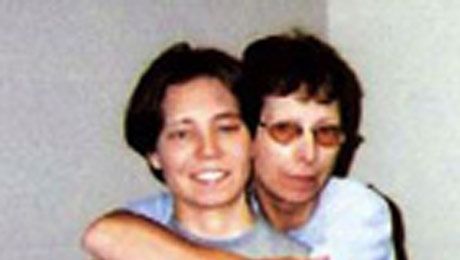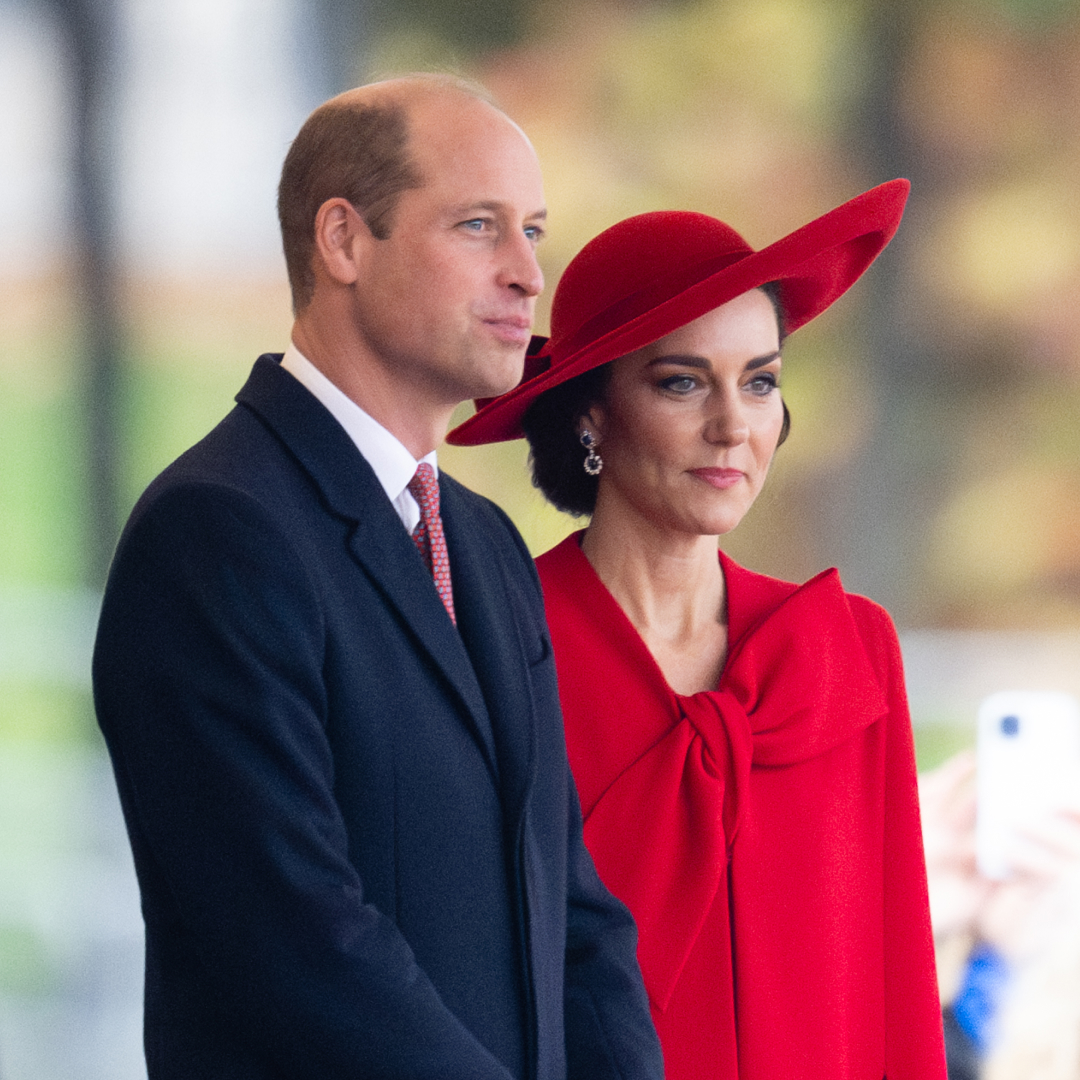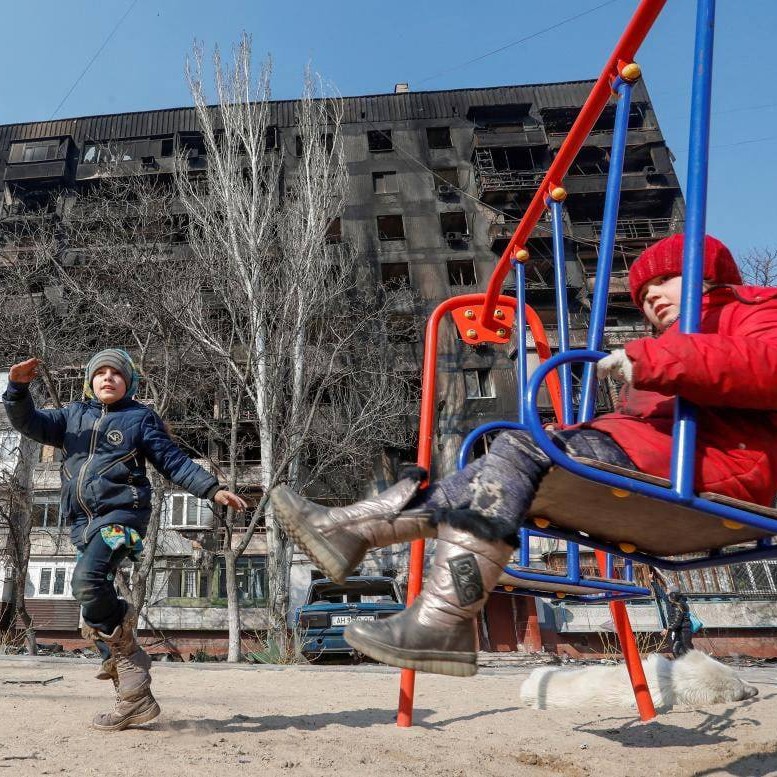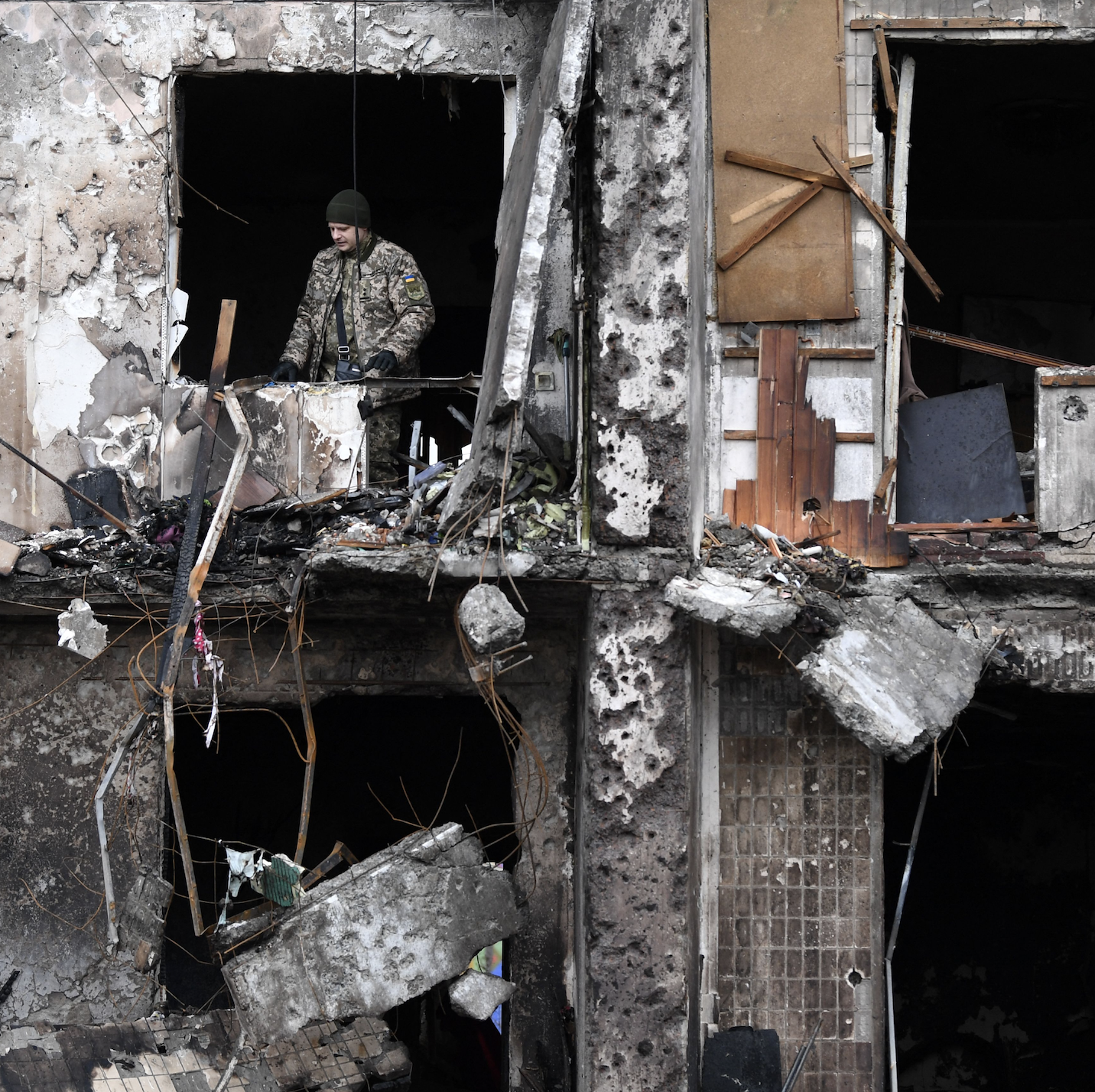A Soldier's Tale: Lynndie England
She's the face of the atrocities at Abu Ghraib. Now serving 36 months in military prison, Lynndie England breaks her silence about what happened in Iraq, and how it all started with falling for the wrong man.

Lynndie England smells like soap. She rubs her hands constantly, and her cuticles are raw and bleeding. Her hair is pulled back in four tortoiseshell clips, and it's streaked with premature gray. She is no longer the waif-like girl with a devilish grin who appeared in the infamous Abu Ghraib photos. On this warm fall afternoon, England, 23, now 30 pounds heavier, wears short-sleeve Army fatigues and black, waffle-soled boots. Her name is stitched across her chest. Dangling from her waist is a yellow-and-white badge that reads, "PRISONER."
This is England's 332nd day of a 36-month sentence. She's serving time in a flat, sandy-colored building surrounded by a 13'4" fence topped with concertina wire at the Naval Consolidated Brig Miramar in San Diego. Since her arrival, she hasn't had a single visitor — not even from her family.
Not that people haven't tried. England receives requests every week, according to her lawyer, Roy T. Hardy, who says that she doesn't give interviews. If she did, though, the first step would be reaching out to her family, with whom she is extremely close.
Which is how I'd wound up, four days earlier, in a trailer park situated off Route 46, behind a sheep farm, next to the windowless Roadside Pub in Fort Ashby, WV. I didn't know which home belonged to the Englands, so I chose one at random, then saw a cooler that said CSX — the name of the railroad company England's father, Kenneth, works for — next to the front steps. I knocked on the door. A skinny woman in her mid-40s, clutching a pack of Bronco 100s, answered. After some coaxing, Lynndie's mother, Terrie, invited me into her trailer. Maybe it was an article I showed her that I'd written about female soldiers killed in the war. Maybe it was because I'd come all the way to Fort Ashby (population 1354) to see her. But three days later, I was on a US Airways jet bound for San Diego with Terrie; England's older sister, Jessie, 26; and England's 2-year-old son, Carter Allan, who hadn't seen his mother in almost a year.
By now, people all over the world have heard of Lynndie England. She's the "Small-Town Girl Who Became an All-American Monster," as one Australian newspaper headline described her, or "the girl with a leash," as Mick Jagger calls her in the song "Dangerous Beauty." Yet England remains a mystery. Is she a torturer? A pawn? Another victim of the Iraq war? While the world weighed in, England said very little. She was only 20 when many of the Abu Ghraib photos were taken — so young that her then-boyfriend, Charles Graner, 35, had to buy her drinks for her at an officers' club where they used to hang out in Fort Lee, VA, before their deployment to Iraq. She's lived in near-seclusion since the photos first appeared on 60 Minutes II in April of 2004, speaking to no one but her family, and then only by phone, since going to prison.
The lawn at the Naval Consolidated Brig Miramar is golf-course thick, and rosebushes are planted alongside the prison's exterior walls. An American flag, hanging from an anchor-shaped pole, ripples in the breeze. Jessie, Carter, and Terrie, a former housekeeper who carries her daughter's metal dog tags in her purse, sit in the prison visitors' room, behind thick, reinforced glass doors guarded by military officers. I wait for England, who has agreed to give her first print interview ever. A few minutes later, she walks down a narrow hallway toward us. Terrie, who is holding Carter, raises him up high. He's quiet — not wiggling or hollering, like he usually does. Mother and son reach their hands toward each other. No tears, no drama. England takes Carter in her arms; he hugs her tight, and England breaks into a smile.
Inside the visitors' room, mothers, sisters, and wives of prisoners sit at plastic tables, holding hands with inmates as they catch up on family gossip. Nobody seems to notice England. But she's used to being overlooked. That's how things were in Fort Ashby, at least according to the locals. "How many people pay attention to the grocery store cashier?" says Lorraine Boles, 71, a clerk at Fort Ashby Books, not far from the IGA where England worked as a checkout girl during high school. "I have a vague picture of one of the girls who worked there — the one I think was Lynndie. She had a pretty smile."
Stay In The Know
Get exclusive access to fashion and beauty trends, hot-off-the-press celebrity news, and more.
Fort Ashby is nice enough; there's just not much to it: a 7-Eleven, two bars, Evan's Dairy Dip, and '70s songs by Kansas and Heart on the local radio. The median family income is $32,375, but many earn far less. England's father, a night-shift railroad-utility worker, makes $1500 a month, not counting overtime. No one in the family has earned a college degree, though Jessie got the closest, finishing half a semester at Potomac State College in Keyser, WV. These days, the IGA where Lynndie worked is shuttered. An "Authorized West Virginia WIC Vendor" sticker on the front door is faded and peeling. Nearby, the Englands' $200-a-month trailer sits on a dirt-and-gravel patch of land. On hot summer afternoons, the park smells faintly of manure from the neighboring farm. A rooster crows, and sheep bleat in their pens. Jessie, her husband, James, and their 2-year-old daughter, Allee, live in a mobile home a few yards away.
Growing up, England wore her hair short and no makeup. She hit softballs with her sister, joined the Future Farmers of America, and played cops and robbers, firing off pop guns as she ran through the uncut fields around her home. "Lynndie was always the cop. That was her big thing," says Jessie. "Guess that didn't work out too good for her."
Her ticket out of the trailer park was the U.S. Army. At age 17, England signed up in a Pittsburgh recruiter's office, over the protests of her mother. "I honestly didn't think there would be a war. But I was ready to go if there was one," England tells me. "I joined because I wanted to. And I wanted to pay for college."
The army put England on its reservist list. In the meantime, she hung out with James Fike, a former IGA stock boy who now worked at Pilgrim's Pride, a chicken-processing plant in Moorefield, WV, where England also got a job, for $10.50 an hour. (Jessie worked at the plant as well.) At Pilgrim's, England helped oversee the marinating and packaging of chicken. "Not long after I started working there, I noticed some chicken parts were discolored and diseased-looking, but the workers still sent them down the line at the plant," she tells me. "I told my supervisors." They ignored her. One night in July 2001, several months after she'd started her job, England got fed up. She walked over to her sister and took off her smock.
"What are you doing?" Jessie asked. "We've only been at work for an hour."
"I quit," England said, and walked out the door. "I didn't like the way management was doing things," England explains. "People were doing bad things. They'd let bad chicken go through the line — chicken that still had blood on it — and look the other way. Management didn't care."
Three years later, employees at England's plant were secretly videotaped throwing live chickens against a wall, twisting the neck of one until its head popped off, stomping on the animals, and suffocating them, according to a PETA investigation. "Besides being overly gross," says Jessie, "it was, like, morally wrong." Several employees were fired. England, then, was a whistle-blower. "A lot of people complained about it," she says defensively when I point this out. "It wasn't just me." Did it ever occur to her, I ask, to protest two years later, when things seemed wrong on the job at Abu Ghraib? She looks down at her hands and doesn't answer.
"Yeah, I thought it was weird," England says eventually. She's describing the human pyramid that was built in the hallway of Abu Ghraib and then photographed. As she talks, she's watching Carter play with a picture book. "We were told we were supposed to do those things. They said, 'Good job. Keep it up.'"
"Most people don't make up their excuse until after they are in trouble," says lawyer Hardy. He explains how England told him, four-and-a-half months before the scandal broke, that things weren't right at Abu Ghraib. It was December 2003, when England walked into his office, across the street from the courthouse in Keyser, WV.
Hardy, a tall, flirty, dark-haired Gulf War vet with an imposing gut who offers a discount to members of the military, greeted her in his office. England was home from Iraq on a two-week leave and wanted legal advice on getting a divorce from Fike, whom she'd married in March of 2002.
Apparently, she'd fallen for another man — a soldier. That afternoon, England and Hardy talked about Iraq. She spoke of Abu Ghraib, and how they would "smoke" the detainees — the code word for forcing prisoners to exercise until the point of collapse — as well as making them walking around wearing women's underwear on their heads and other unusual disciplinary measures.
"She told me their job was to keep them awake: Let them sleep a little bit and then wake them back up. I said, 'Are you allowed to do that?' And she said, 'Oh yeah, that's what we're told to do,'" says Hardy. "She told me the officers were involved; they knew what was going on. There were a lot of what she called 'OGAs.'"
Officially, OGA stands for "other government agency." But everyone in the army knows it means the CIA. It also means, don't ask questions.
"It's a different situation than just working at McDonald's," says Jessie. "If you're told to do something by someone who's higher-ranking in the military, you do it. If you don't, you're going to be court-martialed. Lynndie basically found out you're damned if you do and damned if you don't. And being in love with Graner, that made it even harder."
It's mid-afternoon. In a playful mood, England lifts her son in the air. Carter, a husky toddler with the same chin as his father, Spc. Charles A. Graner, Jr., rips the prisoner badge from his mother's uniform and hurls it toward the wall. England stares at it, lying on the floor. Her mother and sister stare, too, trying to figure out what to do. Picking up the badge is against the rules. In fact, if England touches anything her family has handled, she'll be subjected to a full-body cavity search. As it is, she goes through a strip search after each of our four visits: "If you have your period, and you have a visitor, they make you take your tampon out afterward and squat and cough," she says. "You think those are mirrors?" England asks me, pointing to a row of reflective glass panes on the side of the room. "Those aren't mirrors. There are people on the other side, watching us the whole time."
Not surprisingly, rules are strict: Inmates have to rise at 5 a.m.; they have no choice in what they eat (tonight, macaroni and cheese); and they must perform chores like mowing the lawn, tending vegetable gardens, and folding the American flag. England, however, isn't allowed to take the flag down at the end of the day, "because I'm high-profile," she says. "Somebody might be on the golf course [nearby] and see me touching it" — and maybe even snap a picture. She illustrates, clicking an invisible camera in the air.
Prisoners who break the rules — "push buttons," England calls it — are sent to "DeSeg." (Button-pushing includes such things as engaging in sexual activity with another prisoner.) "In DeSeg, they make you sit in isolation in a windowless room. You can't watch TV or read," she explains. "You have to sit at a desk. You can't sleep from reveille to nighttime." Sleep deprivation — it sounds like one of the methods used on prisoners in Abu Ghraib. "Like a time-out," I add lightly, sensing England's tension. "You have no idea," she says, giving me a stony look.
And what about Graner? Make that "Shithead." That's what England calls him. She met him while processing his paperwork for the 372nd Military Police Company after he arrived in Cresaptown, MD, in November 2002. He was 15 years older. He used to follow her out to the smoking area. Graner didn't smoke, though; he just wanted to see her. "He was funny, the jokester," she says. "Was he too old for me? I didn't think about it at the time. He acted like he was 3 years old." He was loud, raunchy, and bad to the bone. "An outlaw," she calls him. Their affair started in March 2003, while they were stationed in Fort Lee.
"When Lynndie joined the army and was working at the reserve center in the U.S., she didn't know anybody. She was a really quiet girl," says former Brigadier General Janis Karpinski, the commanding officer at Abu Ghraib during England's stint. "Enter Charles Graner. Their paths cross for the first time. He's much older, and he's full of himself. He's just got that kind of personality."
"She was blown away," Karpinski continues. "She felt like someone was finally talking to her. Paying attention. He seemed far more experienced and worldly than anyone she knew. It only took a few short conversations. She was enamored with him."
"Graner was the total opposite of Jamie [Fike, England's husband]," says Jessie. "Lynndie told me, 'He's real open. He likes to do stuff. Wild things.'" England didn't know about his past. According to court documents, Graner beat his former wife, Staci Morris, and dragged her by the hair across a room. A former civilian prison guard, he'd also been accused in a federal lawsuit of assaulting an inmate at Pennsylvania's State Correctional Institution-Greene in 1998 and putting a razor blade in the inmate's mashed potatoes.
England brought Graner home with her to Fort Ashby in early 2003. With a foul mouth and pierced nipples (they saw those later), he didn't make a good impression. That day, recalls Terrie, he stood in their living room and slowly looked around.
"Charles, you're more than welcome to sit down," she told him.
He remained standing.
"He couldn't wait to get out of there," says Terrie. "I don't know if he thought we were nothing or what. I said, 'You're nothing but trying to get into my daughter's pants.'
He said, 'No, ma'am, my intentions are honorable.'
He was blowing smoke up her ass.
I said, 'Here's the door and don't let it hit you on the way out,'" she recalls.
"We were just like, 'There is something wrong with this guy,'" says Jessie. "I don't know what. Maybe when he was born, something fell out of his ear that was supposed to be attached to his brain."
But England refused to give him up. In March 2003, she went with Graner and another soldier to Virginia Beach. During the trip, Graner took pictures of himself having anal sex with England. He also photographed her placing her nipple in the ear of the other soldier, who was passed out in a hotel room. Soon, it became their new game: Whenever Graner asked her to, England would strike a pose.
"Everything they did, he took a picture of," says Hardy, her lawyer. "I asked Lynndie why she let him. She said, 'Guys like that. I just wanted to make him happy.' She was like a little plaything for him. The sexual stuff, the way he put her in those positions, that was his way of saying, 'Let's see what I can make you do.'"
After the Virginia Beach expedition, England and Graner rented a car and drove to eastern Kentucky, where her parents and grandfather were turkey hunting in Daniel Boone National Forest. Sitting between Graner and her parents at a picnic table, England asked Graner to share some scenic pictures from their trip to Virginia Beach. Graner handed an envelope to England's father, who opened it and scanned the images, then handed them to Terrie. They showed nudity and sexual scenes. Apparently, Graner had given them the wrong vacation shots. "I was really bent out of shape," Terrie says.
It's early afternoon. England looks out the prison window at a grassy area bathed in Southern California sunlight. Two people are sitting outside at a table. A golden retriever lies nearby on the lawn. "That's Evelyn," England says. "She's one of the dogs we work with in the prison program. We start them at eight weeks, and we train them to help the handicapped. They work in nursing homes, or help deaf people. Some of the dogs live with people who have panic attacks. The dog knows beforehand that a panic attack is coming on, and they can make a signal so the person can get their medication before it's too late."
When she describes the dogs, England's face lights up. Her mom, Terrie, has two cats, Sadie and Piggy. Until she gave birth to her daughter, Jessie had three. As kids, she and England used to watch Where the Red Fern Grows, a film based on a Wilson Rawls novel about a 10-year-old and his two hunting dogs in the Ozarks during the Depression. The video still sits on a shelf in her parents' trailer.
"We love animals — cats, dogs," says Jessie. "We're real tender with them." Usually.
In June 2003, a group of about 20 soldiers, including England, Graner, Specialist Sabrina Harman, Staff Sergeant Ivan L. Frederick II, and Specialist Joseph M. Darby, were deployed for duty in Iraq. The first stop: the Hilla camp, 58 miles south of Baghdad, where the army was training new Iraqi police officers. The American forces took up residence in an abandoned date-processing factory, a big, open space, like an airplane hangar, but screaming hot and full of bird shit.
Not long into their stay, two of the soldiers appeared at the base one day with animal carcasses. They'd found a dead goat and a dead cat somewhere and started slicing them up. Someone took a photo of a soldier pretending to have sex with the goat's head. "Then they cut off the cat's head and shoved it on the top of a soda bottle," England says.
For several weeks, the decaying animal heads provided entertainment for the soldiers. "Someone put sunglasses on them, and put the rifle next to the heads and took a picture. Some soldiers put a cigarette in the cat's mouth," she says. The soldiers stashed the severed heads in their rooms.
"It was funny," England says. "So funny."
During that time, Graner instigated another kind of amusement: sexually charged weekly theme parties in the barracks. "Naked Chem-Light Tuesday," he called it. A Chem-Light is a light stick used by soldiers that's akin to a flashlight, containing hydrogen peroxide and a fluorescent dye packaged in a small plastic tube. Break it open, and the stuff glows for hours. One night, Graner pulled his shorts down, poured the contents of a Chem-Light onto his penis, and walked around naked.
In October 2003, the soldiers set aside their games and headed for their next assignment: Abu Ghraib.
Janis Karpinski remembers the day England arrived at Abu Ghraib in 2003. "She came in a carload of 20 soldiers," she recalls. "On their way to the prison they hit an IED [improvised explosive device]. It didn't hurt them, but it was a real 'welcome to Baghdad' moment." England and the other soldiers climbed out of the vehicle. Karpinski greeted them. "I shook her hand — it was very small. She's small, you know. Not assertive or aggressive. Honestly, she was young and innocent. I know those words don't seem to apply to the pictures she was in. But when I touched her, I felt fear."
England arrived in the thick of intense fighting. Insurgents launched mortar attacks at night. During the day, snipers trained their weapons on guards. In between, prisoners threatened to riot, walking in circles, chanting in protest. England worked in a processing office. She had no real business being in Tier 1A, where Graner worked, the wing of the prison where suspected insurgents were held. But she'd slip over there at 10 p.m. and wait for Graner in his cot. "In situations like Iraq, the first thing some young female soldiers look for is a protector — a senior male, let's say, who's sitting in a vehicle with her," says Karpinski. "She says, 'I'm really afraid.' And he says, 'Don't worry.' A closeness develops. It's intentional on his part. And naive on hers. Graner is a big, hunky guy. He can probably put his arms around England and still touch his shoulders. Does she feel safe with him? Yes. And all she has to do is be sexually wild with him."
And pose for more pictures. In a supply room, Graner takes a shot of England performing oral sex. England adds a flourish for the photos: a thumbs-up sign. In another photo, England is standing near a detainee, Hayder Sabbar Abd, a 34-year-old taxi driver, as he is being made to simulate masturbation. Again, she gives a thumbs-up.
Why did she let Graner take all those pictures? Wasn't she afraid he'd show them to people? "I didn't want him to take the pictures," England tells me. "But he took pictures of everything. He kept a camera in his cargo pocket. He was always taking his camera out. Sometimes he took the pictures for himself. Sometimes he took them for documentation."
According to Frederick, who was deposed during the military trial, "[Graner] always talked about being in Desert Storm, and the things he saw and did, and he had no way to prove these things happened. So this time around, he said he was going to take pictures to take back home as proof."
England remembers one detainee, "Gus." (The prisoner's real name has not been released.) "He didn't like Americans," she says. Gus was a "small man weighing approximately 100 pounds," according to government documents. He was mentally ill; he had smeared his own feces on his body and threatened to kill some of the guards. One autumn night, Graner went into his cell with a leash (a "tie-down strap," according to the documents). Gus was submissive. Graner put the strap around his neck, led him out of the cell, and handed the strap to England. Then he took a picture — and sent the jpeg to his family in Pennsylvania.
"Look what I made Lynndie do," Graner wrote in the email.
Another prisoner, Hussein Mohssein Mata Al-Zayiadi, testified he was beaten and forced on top of a human pyramid. The abuse took place at night and into the early morning hours of November 8, 2003, England's 21st birthday.
Who came up with the idea? "It wasn't us, it was his daddy," England says, nodding at Carter, who's sitting next to her. She reaches over and kisses him on the forehead, while he grapples with a plastic airplane and then shoves it across the table.
Where did Graner get the idea? "He said it was because it was a narrow corridor, and it would be better to put them all together and that it would keep them busy. He didn't tell us what he was going to do before he did it. He just told us as we were doing it."
A photograph of the human pyramid was used as a screen saver on a computer at the prison, according to a military investigation. Testifying in court, Al-Zayiadi said he'd believed Americans were good when they removed Saddam Hussein from power in April 2003. The events that November changed his view.
"What occurred that night has humiliated him so much so that he has wanted to kill himself," according to England's court-martial. "But he does not have the means to do so, because he is still in Abu Ghraib."
Karpinski remembers when she first saw the photos. It was late one evening at Camp Victory, a military base in Baghdad. "A colonel came into my office with a folder. When I opened it, the first thing I saw was a human pyramid. There's little Lynndie England, looking like some two-bit prison-marm with that cigarette dangling out of her throat and her thumbs-up. I was shocked."
England has taken the tortoiseshell clips out of her hair now, letting it fall around her cheekbones. She doesn't like the feeling. But her military attorney has advised her to grow her hair longer, to try and look more feminine. Softer. She shakes her head and makes a face. England is up for parole this fall, but chances are, Hardy says, she'll serve out her term. She was found guilty of mistreating detainees, conspiracy, and committing an indecent act. Although she was not found guilty of actual physical abuse, she received one of the harshest punishments of those implicated in the debacle.
It's been two-and-a-half years since the scandal broke. Does England feel bad about what happened at Abu Ghraib? Guilty? Has her opinion about what she did changed?
"Yeah," she says, nodding her head. "I can't explain why."
She looks at the floor and is silent. When she speaks, she does so carefully — the way she's been coached.
Clearly, England has confided in her lawyer about things she saw or did that never came up in court, and Hardy wants to protect her from any new charges. So he has counseled her to say, "I heard," or "There were rumors," or "I was told," when she describes things.
"Some of them were nice," she says, referring to the detainees. "Some of them spoke English. Some of them hated Americans."
Is it true that an American contractor sexually assaulted an Iraqi boy in prison?
"I heard rumors he did things to boys in the cell," she says.
Were men hung in their cells with their arms tied behind their backs?
Hardy gives England a stern look. "Remember what I said," he tells her.
"I was told there were hangings of people in the doorways of cells," she says.
England doesn't flinch when she mentions them. It reminds me of her reaction to the mutilated animals in Hilla — so strange, from a self-described animal lover. In both cases, she seems utterly detached, a slight, awkward smile fluttering across her face.
Terrie and Jessie are sitting in a McDonald's off I-68 near LaVale, MD, one day after their visit with England. Carter is there, too, chugging a container of chocolate milk, oblivious to the drama his family is caught up in.
Graner, England had told me back at the prison, never admitted to being Carter's father. "He's not on the birth certificate," she said. "In order to get that, we'd need a paternity test. That would give him rights, and I don't want him to have any. I don't want him around Carter." What will she tell him about his father? "I don't know." Has he asked about him? "Sometimes."
Inside the McDonald's, Carter reaches for a fistful of Chicken McNuggets. "Daddy!" he shouts, trying out a new word. Terrie explains that's what he's taken to calling Ken, England's father. Usually, the family just lets it slide. Nobody wants to tell Carter his father is a prisoner in the U.S. Army Disciplinary Barracks in Fort Leavenworth, KS — and that he doesn't want to see his son.
I figure now is as good as any a time to mention that some people say England must have been abused as a child. That it would help explain her abhorrent behavior. Terrie and Jessie have heard it all before. They say England was never mistreated, sexually or physically. They are an exceptionally close trio: playfully teasing, quarreling, protecting one another. When they were children, Jessie looked out for her little sister, pulling other kids aside in the school cafeteria and telling them to knock it off when they made fun of England's wandering eyes (a medical condition that has improved as she's gotten older). These days, Terrie worries about England incessantly; on one afternoon alone in San Diego, she popped at least three Xanaxes. ("I love my mom, but I'm like, 'Breathe!'" says Jessie.)
Neither does it seem right to call England "overly compliant," as a court psychologist suggested during the trial. She did, after all, stand up to her mother when Terrie didn't want her to join the army; she stood up to her family when they disapproved of Graner; and to the Pilgrim's Pride supervisors when they looked the other way.
One thing, though, is certain. England was a small-town girl, not even of legal drinking age, when she found herself halfway around the world, in an amoral place, surrounded by violence and infatuated with a volatile, manipulative man.
"You have to understand that it builds into a crescendo," says Karpinski. "Lynndie is away from the flagpole, in Abu Ghraib — the most terrible place. You're being mortared every night. You are breathing dust and broken concrete. It's hot. You feel dehumanized. You're drained of every bit of compassion that you have. She did it because she wanted to come back from this godforsaken war and be able to say, 'We did this for the government.' She was made to believe that this was of such importance to national security. It was, you know, 'You stick with me, kid, and you might even win a medal.'"
"Graner was her protector," Karpinski continues. "She wanted to please him, and she'd do anything he told her to do. She's thinking, 'Graner would never tell me the wrong thing. I'm sleeping with him. I trust him.'"
Now England can't take any of it back. She seems resigned. "They're never going to clear my name," she told me earlier. "Everybody knows who I am." These days, she's trying to prepare for a future with her son — learning to repair computer and electronic equipment, so she'll have a trade when she gets out. "Now I can fix anything," she said.
She's been checking on salaries for electricians in Fort Ashby through a software program that prisoners are allowed to use: "Thirty-five thousand a year." England has also been taking a parenting course. She and the other inmates role-play: One person acts like a parent, and another is the child. A third inmate writes down strategies the "parent" uses.
"Although," she said as our last prison visit came to an end, "after spending time with Carter this weekend, I went back to my cell last night and was like, 'You can throw all the stuff I've learned in my parenting class out the window.'"
Finishing up a cup of black coffee at McDonald's, Terrie shares her own perspective on how hard it is to be a mother. "People say they understand what I'm going through," she says, keeping an eye on Carter as he bats at his McNuggets.
"I want to say, 'You have no idea what it's like to have your daughter be the cause of a worldwide scandal.'"
-
 Adele Sets Her Courtside Sneakers Aside
Adele Sets Her Courtside Sneakers AsideAn elegant shoe trend is taking their place.
By Halie LeSavage
-
 Kate and William's Easter Absence Made Andrew's Return "Easier"
Kate and William's Easter Absence Made Andrew's Return "Easier""There is, I'm told, quite a lot of friction between them."
By Amy Mackelden
-
 Princess Isabella of Denmark Makes Her Tiara Debut on 18th Birthday in a Touching Family Heirloom
Princess Isabella of Denmark Makes Her Tiara Debut on 18th Birthday in a Touching Family HeirloomKing Frederik and Queen Mary's daughter celebrated her milestone birthday in style.
By Kristin Contino
-
 36 Ways Women Still Aren't Equal to Men
36 Ways Women Still Aren't Equal to MenFeatures It's just one of the many ways women still aren't equal to men.
By Brooke Knappenberger
-
 For These Ukrainian Women, Their Weapons Are Their Smartphones
For These Ukrainian Women, Their Weapons Are Their SmartphonesBy collecting cell phone video straight from the front lines, Dattalion shows the unfiltered horrors of the war.
By Maria Ricapito
-
 "It Is Hell."
"It Is Hell."Marie Claire Ukraine staffers on what they’re enduring as bombs fall on their beloved country.
By Galia Loupan
-
 Clarissa Ward on What It's Really Like to Report Live From Ukraine Right Now
Clarissa Ward on What It's Really Like to Report Live From Ukraine Right NowThe network's chief foreign correspondent on pivoting from Kabul to Kharkiv and Kyiv.
By Maria Ricapito
-
 EMILY's List President Laphonza Butler Has Big Plans for the Organization
EMILY's List President Laphonza Butler Has Big Plans for the OrganizationUnder Butler's leadership, the largest resource for women in politics aims to expand Black political power and become more accessible for candidates across the nation.
By Rachel Epstein
-
 Want to Fight for Abortion Rights in Texas? Raise Your Voice to State Legislators
Want to Fight for Abortion Rights in Texas? Raise Your Voice to State LegislatorsEmily Cain, executive director of EMILY's List and and former Minority Leader in Maine, says that to stop the assault on reproductive rights, we need to start demanding more from our state legislatures.
By Emily Cain
-
 Your Abortion Questions, Answered
Your Abortion Questions, AnsweredHere, MC debunks common abortion myths you may be increasingly hearing since Texas' near-total abortion ban went into effect.
By Rachel Epstein
-
 The Future of Afghan Women and Girls Depends on What We Do Next
The Future of Afghan Women and Girls Depends on What We Do NextBetween the U.S. occupation and the Taliban, supporting resettlement for Afghan women and vulnerable individuals is long overdue.
By Rona Akbari